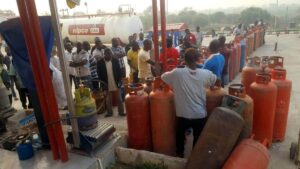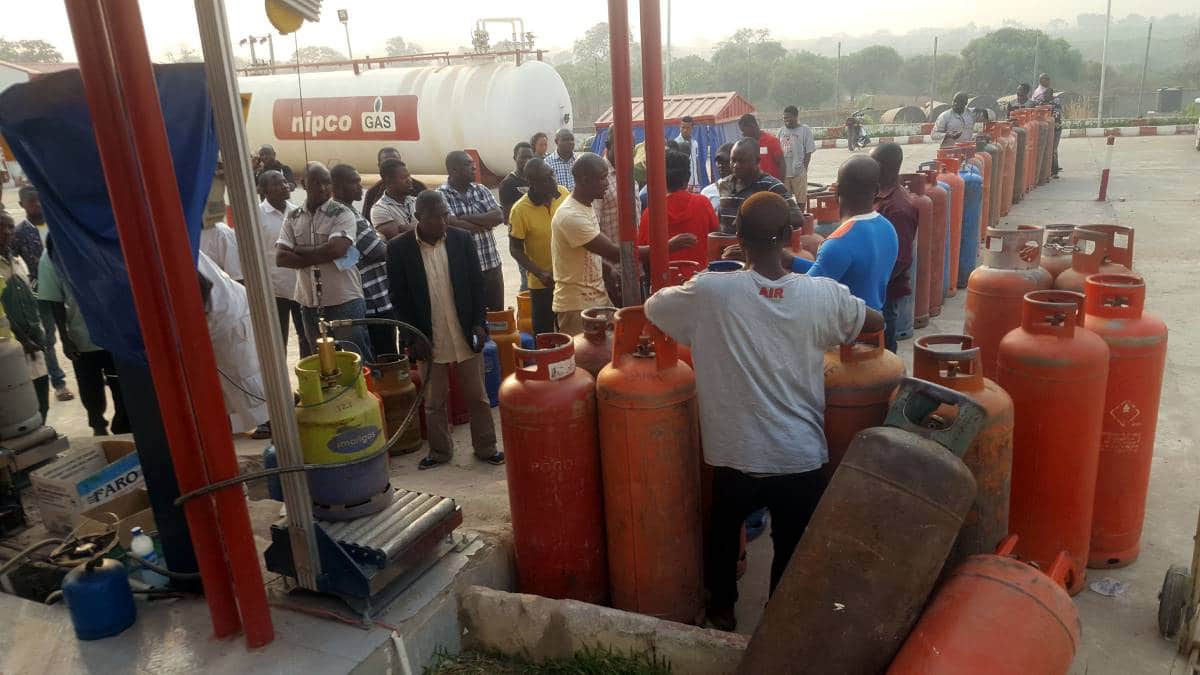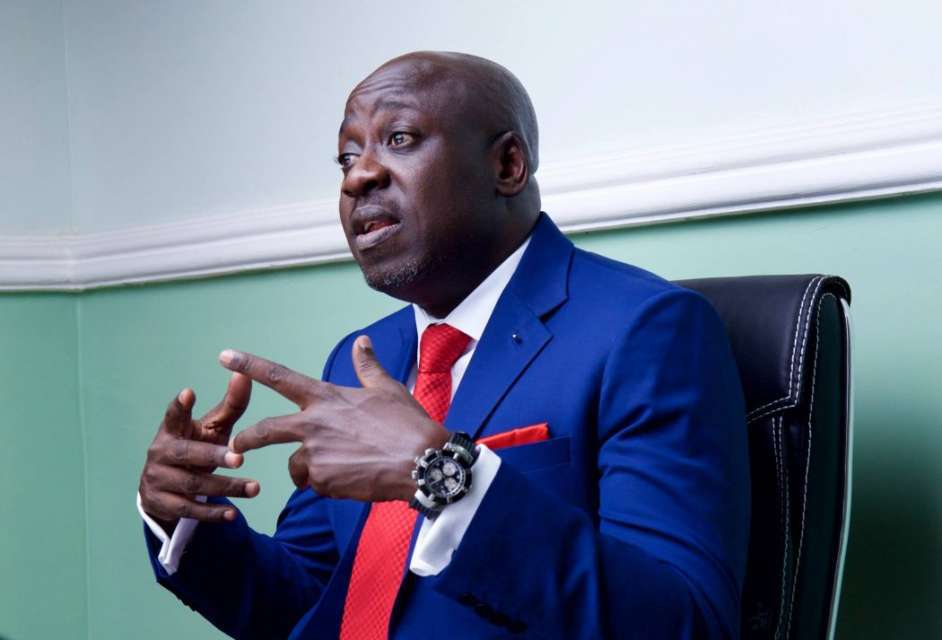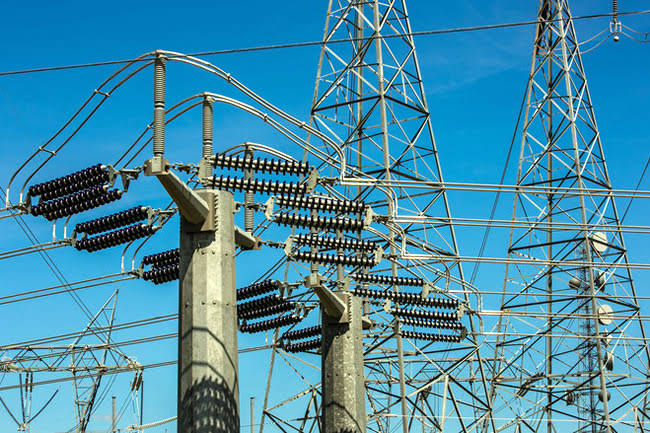
The price of cooking gas per kilogram across the country has dropped significantly, offering some relief to households battling high living costs.
According to the National Bureau of Statistics (NBS), the average retail price of refilling a 12.5kg cylinder of Liquefied Petroleum Gas (LPG), popularly called cooking gas, fell by 21.42 per cent month-on-month in August 2025, moving from ₦20,609.48 in July to ₦16,195.07 in August.
Despite this short-term relief, the report noted that prices were still higher compared to last year, recording a 4.13 per cent increase year-on-year, from ₦15,552.56 in August 2024.
States With the Highest and Lowest Prices
Breaking down the figures by state, Yobe topped the list with the highest average price for a 12.5kg refill at ₦16,887.42, followed closely by Adamawa (₦16,872.40) and Ebonyi (₦16,859.17).
On the other hand, Benue State recorded the lowest price at ₦15,102.50, followed by Borno (₦15,176.39) and Imo (₦15,177.58).
For zonal averages, the North-West recorded the highest price at ₦16,358.15, trailed by the South-East with ₦16,344.61, while the South-West recorded the lowest zonal average at ₦15,865.17.
Smaller Cylinders Also See Price Drop
The report also highlighted that smaller cylinders followed the same trend.
The average retail price for refilling a 5kg cylinder fell by 22.32 per cent month-on-month, down to ₦6,404.02 in August from ₦8,243.79 in July.
On a year-on-year comparison, however, the 5kg refill price showed a slight dip of 0.40 per cent, falling from ₦6,430.02 in August 2024.
Where 5kg Refills Are Cheapest and Costliest
By state, Katsina recorded the highest average price at ₦6,945.21, followed by Taraba (₦6,893.12) and Rivers (₦6,886.49).
In contrast, Delta State offered the cheapest price at ₦5,657.50, while Bauchi (₦5,721.75) and Borno (₦6,070.56) were also among the lowest.
Looking at the zones, the North-West again recorded the highest average price at ₦6,473.63, followed closely by the North-East with ₦6,465.63, while the South-South recorded the lowest at ₦6,331.29.
Naija News reports that the latest drop in prices will likely bring relief to millions of Nigerian households that rely heavily on cooking gas.
Many families had complained in recent months that soaring prices forced them to cut down usage, while some reverted to firewood and charcoal, raising health and environmental concerns.
Analysts, however, warn that the volatility of gas prices means the relief could be short-lived unless supply and distribution bottlenecks are addressed.





